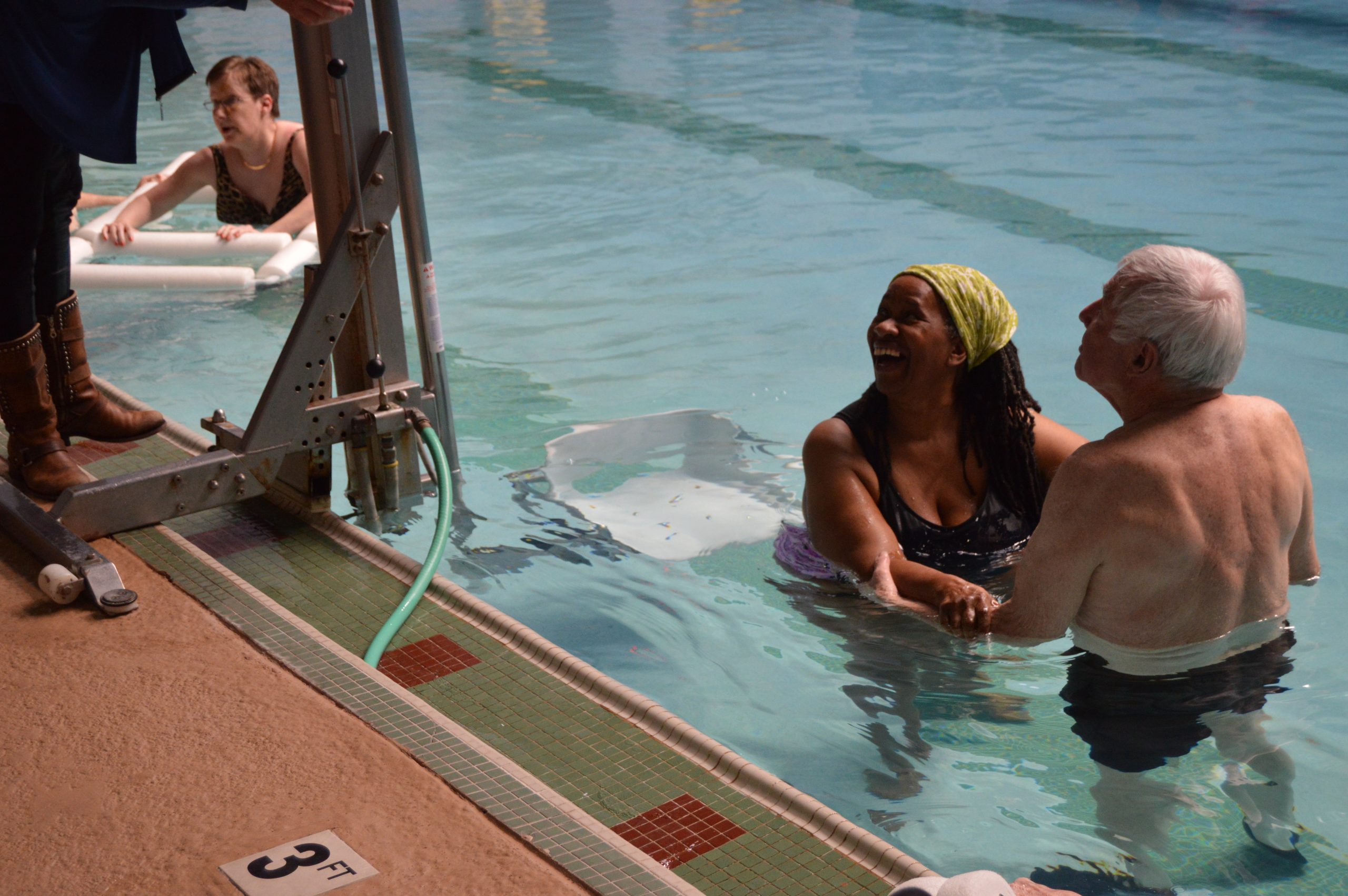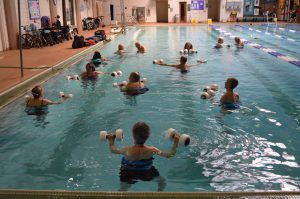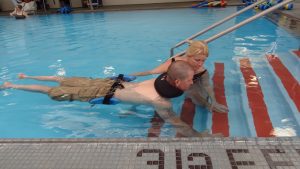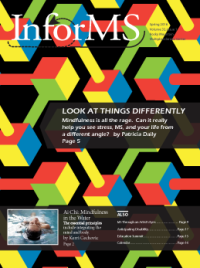
Incorporating mindfulness strategies into your day-to-day life may feel somewhat daunting. Fortunately, there are many approaches that can help you take some initial steps to connect your mind and your body. As discussed in this issue, mindfulness techniques include things like yoga, and at-home meditation, relaxation, and deep breathing practices. There are several unique options and it’s important to find the right tool for you.
 One unique approach is known as Ai Chi – also known as water Tai Chi. The Tai Chi for Health Institute describes the practice in this way: “The essential principles include mind integrated with the body; control of movements and breathing; generating internal energy and mindfulness. The ultimate purpose of Tai Chi is to cultivate the life force within us to flow smoothly and powerfully throughout the body.”
One unique approach is known as Ai Chi – also known as water Tai Chi. The Tai Chi for Health Institute describes the practice in this way: “The essential principles include mind integrated with the body; control of movements and breathing; generating internal energy and mindfulness. The ultimate purpose of Tai Chi is to cultivate the life force within us to flow smoothly and powerfully throughout the body.”
Michele Harrison, Rocky Mountain MS Center Hydrotherapy Coordinator and Licensed Physical Therapist, has provided both Hydrotherapy and Ai Chi classes to hundreds of patients living with MS and other neurological diseases for the past 15 years.
Hydrotherapy is exercise in the water and includes stretching, balance activities, endurance work, and strength work for all parts of the body. Ai Chi is a form of hydrotherapy and involves a pattern of slow, gentle, broad sweeping motions. It’s focused on weight shifting, balancing, coordination, stability, and posture.
Helping people find pathways to connect the mind with the body is key to the Ai Chi practice. Each movement incorporates guided and controlled breathing. Michele describes this connection in this way: “Our breath is automatic and it’s also under our control. It’s the quickest way to tie body and mind together.”
During each Ai Chi practice, Michele incorporates a meditative practice. She always strives to give people different ideas of how to manage stress. “A lot of people will tell me, ‘Oh I can’t meditate.’ I help them understand that is not about our minds going blank. It’s learning to quiet our minds that jump from one thought to another to another. Meditation helps us to find pathways to a quieter mind.”
 Ai Chi also helps with participants with fatigue management. “If you think of your energy being stored in a bank, we are withdrawing energy from our banks all the time, day in and day out,” says Michelle, “There’s very little time that we actually deposit energy back in. The practice of Ai Chi allows us to take a moment and put some energy back, which helps to rejuvenate our body and mind.”
Ai Chi also helps with participants with fatigue management. “If you think of your energy being stored in a bank, we are withdrawing energy from our banks all the time, day in and day out,” says Michelle, “There’s very little time that we actually deposit energy back in. The practice of Ai Chi allows us to take a moment and put some energy back, which helps to rejuvenate our body and mind.”
Gloria Cavalier was diagnosed with MS in 1995 and has been participating in Ai Chi classes for 7 years. Gloria explains that Ai Chi helps her greatly with her balance, walking, and strengthening muscles.
In addition to these physical benefits, she describes the impact the classes have on her life:
“Ai Chi helps me to take a moment of my day to breathe and relax. By slowing down, I enjoy the present and positive moment, instead of rushing through the day and going through the motions. Of all the things I do each week, Ai Chi is my favorite thing to do.”
Peggy Flynn has been taking Ai Chi classes for 10 years and explains, “I believe Ai Chi has helped me keep my strength and balance. And the guided meditation has helped me stay calm.”
To learn more or sign up for Rocky Mountain MS Center’s Ai Chi and Hydrotherapy Classes with Michele Harrison, Licenced Physical Therapist, please visit http://www.mscenter.org/care/hydrotherapy

